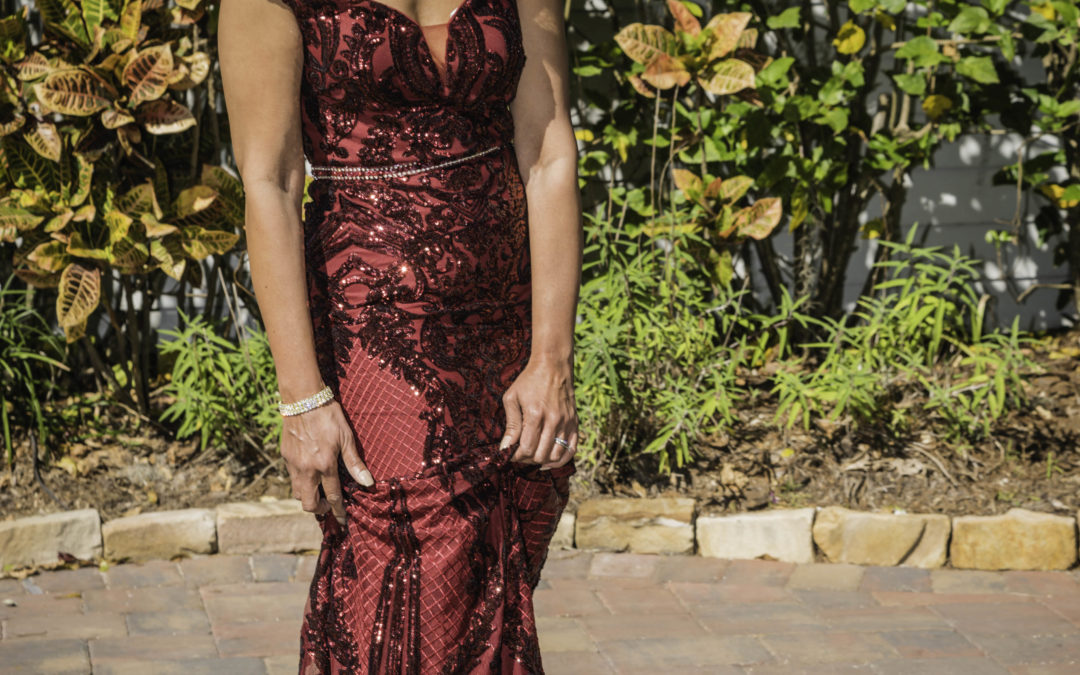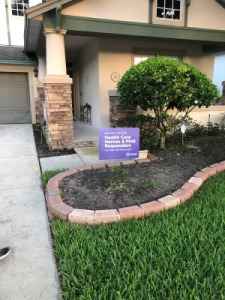by Rosie Moore | Nov 13, 2021 | Uncategorized
Too many times we hear of people committing suicide because someone cyber or in-person bullied them. To me those bullies are COWARDS!! They have other issues themselves that are not resolved. Let today be the start of a new wave to be kind to others. There is too much bullying regarding race, socioeconomic status, marital status, gender identity, and a new one health bullying over mandates.
“The National Centre Against Bullying defines bullying as an ongoing and deliberate misuse of power in relationships through repeated verbal, physical, and/or social behavior that intends to cause physical, social, and/or psychological harm. It can involve Bullying is an ongoing and deliberate misuse of power in relationships through repeated verbal, physical, and/or social behavior that intends to cause physical, social, and/or psychological harm. It can involve an individual or a group misusing their power, or perceived power, over one or more persons who feel unable to stop it from happening.”
Pres. Joe Biden urges unvaccinated Americans to get vaccinated: “We’ve been patient, but our patience is wearing thin and your refusal has cost all of us.” http://abcn.ws/3BULUX6 Wowwhether I believe in vaccines or not is irrelevant, but as a healthcare provider myself I have to respect when a patient tells me, Ms. Rosie, I do not want to get vaccinated. It is a person’s personal choice. We can agree to disagree but that is the same as when I want to help my patients to quit smoking because they will develop lung or other types of cancer, or stop drinking so that they do not end up on a liver transplant list.
In today’s world, healthy people choose to do to their bodies as they please, and although some may disapprove, no mandates on their careers or privileges are taken away ( ex breast augmentation, butt lifts, transgender surgery, abortion). So why not allow autonomy in today’s world for people to choose what they inject into their bodies. Legal marijuana is a thing right? We may or may not agree with that, but no one is forcing anyone to use this as their treatment for pain.
So today let us spread kindness and respect. I say this also to our leaders in Washington, allow people to make their own choices, your political mandates will turn voters away from you. I will also leave this with you, if you are in a car accident and taken to a hospital and it is a matter of life and death and the only person who has the specialty for your type of injury is unvaccinated, will you refuse to help? I don’t think so, because at that point you are so incapacitated that no one is going to care if the person saving your life is vaccinated, they will only care that they took the hypocritical oath that they are to follow.
In 2020 a new hypocritical oath for physicians came out and it states
“The new oath asks physicians to eliminate their personal biases, combat disinformation to improve health literacy, and be an ally to minorities and other underserved groups in society. It is illegal for a physician to refuse services based on race, ethnicity, gender, religion, or sexual orientation.
For nurses, they have taken the Nightingale Pledge
“I solemnly pledge myself before God and in the presence of this assembly, to pass my life in purity and to practice my profession faithfully. I will abstain from whatever is deleterious and mischievous, and will not take or knowingly administer any harmful drug.”
The new version also adds
“I will hold in confidence all personal matters coming to my knowledge. I will not permit consideration of religion, nationality, race, or social standing to intervene between my duty and my patient. I will maintain the utmost respect for human life. I make these promises solemnly, freely, and upon my honor.”
So today as you go about your day, remember the things that are important to you with your healthcare and how it would make you feel if someone took those healthcare decisions away. For Example diet, do you really need to eat that piece of chocolate cake when you are overweight, diabetic, with high blood pressure? Sounds kind of harsh for someone to say that right? But people do and not with grace I might add.
Watch this video made by Ikeahttps://www.youtube.com/watch?v=Yx6UgfQreYY
Source: Rosie’s Nurse Corner

by Rosie Moore | Aug 26, 2020 | Uncategorized
Sometimes in life, we go through trials that will knock us down, but we are warriors and can get back up. Those are the battle scars that we turn into testimonies and messages from the mess that they cause. I am here today to say that I am living proof that anyone can turn their test into a testimony and their mess into a message. I am going to be transparent today and share with you a glimpse into a part of my message and testimony. I survived bullying as a child, bullying in the workplace as an adult, health issues during a difficult pregnancy, weight gain, emotional scarring from a divorce, and loss of family.
When my ex-husband said to me “you are fat, ugly, and damaged goods, and no one will want you and your baggage of kids.” I lived with this scarring for many years. I believed the lies that this man told me. Now what you don’t know is that at this time I was 5’7″, weighed 124lbs and my body fat was 16% with 98lbs of lean muscle mass. I was in the best shape that I was ever going to be in. I danced, worked out, and ate right. But emotionally, I was a mess because every time I looked in the mirror I saw the description of what this man told me. The image I saw was distorted and I believed the lies of deception. The devil had me believing that I was a worthless human and of no use in this world. However, a friend I met in my dance studio friended me and started talking positive words of affirmation in my ear. He was not romantically interested in me, although I wished at the time he was, however, he knew better what was needed. He took me out on dates as friends, he held my hand, he kissed me on the cheek and taught me how to change a light bulb ( literally) he taught me the thing I needed most. I needed to love myself, love others for who they were, be independent, and to just be enough. This started the healing process and the confidence to be just me. I used this newfound meaning of confidence to get through the challenges that I would later on face. But my faith in Jesus, my support of good friends (Terry, Beth, and Renee), and marrying my best friend and soul mate helped me grow into the person I have become today.
I found my soulmate and married him after 7 years of being single. He loved me as no one else had. He loved me for me and he loved my kids. We experienced in our first years of marriage troubled teens, an ex-husband that talked trash about me to our kids, I had a baby born premature, I had high blood pressure from the pregnancy, and nearly lost my life as it got to stroke level and older kids that are now estranged as a result of the divorce and remarriage. I recently lost my dad unexpectedly and have to take care of my elderly mom who lost her eyesight completely from Diabetes complications, but guess what? I am a warrior and I fought the good fight on the battleground of life and no matter what the enemy tries to throw at me, I will use my shield to fight back. I am not going to be defeated no matter what.
I share this with you today because many times I have women come to me and say your life is so perfect I could never get out of the mess that I am in. No, my life is not perfect, my life is messy like anyone else’s, but what makes it different, is the outlook I look at life with. Circumstances at times cannot be changed but how we look at them is something that we can control. I have a special needs child with intellectual disability and yes he is a handful at times, but nevertheless, God gave me this little boy to share the miracle that he is because he is fortunate to be here on this earth. Doctors gave him zero chance of being conceived naturally, 5% chance of survival after being born, and towards the end of my pregnancy when my blood pressure got to 220/124 and my son stopped breathing, a crash c-section was done to get him out and we both crashed. But guess what? On October 13, 2009, God breathed life into my lungs and baby Kaleb and said today is the day that I have set aside to give you something to share and give hope to others. That became my testimony and how the nonprofit organization The Gift of Life was born.
Through this confidence in myself that came from my Lord and Savior and the support of a loving husband, I completed my bachelor’s degree in nursing as well as my Doctorate of Nurse Practice, I established 27 Miracles Wedding and Event Planning Windermere Baby and Family , Rosie Moore author of children’s books and adult books, and a representative of Ms. Puerto Rico World. SO this may seem like a lot of accomplishments and they are, but what good does it do me if I do not share my gifts and talents to help others?
Matthew 16:26 What good will it be for someone to gain the whole world, yet forfeit their soul? Or what can anyone give in exchange for their soul?
So look in the mirror, open your eyes, and repeat this, “My name is Rosie Moore ( insert your own name), I am fearfully and wonderfully made, and I am more than enough. “
Psalm 139:14 says I praise you because I am fearfully and wonderfully made;
your works are wonderful, I know that full well.
Listen to my Tea Time With Just Rosie Moore podcast for some positive words. Then join me on my Facebook group Empowering Girls and Women here you can follow stories of other women and share your own story as well as be inspired.
Visit me on:Rosie@justrosiemoore27.com Website: www.rosiemoore27.com
“Remember to always dream because dreams do come true. Keep the faith.”
Podcast: Tea Time with Just Rosie Moore Facebook Group: Empowering Girls and Women Facebook Page:Ms. Puerto Rico World Facebook Page: Author Rosie Moore
My favorite song that inspires me is called ” Warrior “by Hannah Kerr. If you get a chance have a listen to it, I promise you it will uplift you.
by Rosie Moore | May 6, 2020 | Uncategorized
As nurses, we have the ability to use compassion and genuinely want the best for our patients. We understand our patients and want to help them find the best treatment that will help them. There are also nurses and doctors who do not exercise cultural competence in what the patient’s beliefs and wishes are. As nurses, we have to validate our patients’ feelings of fear of not being able to provide for their families. Many hospitals have case managers who focus on the hospital losing money and allow patients to treat at their facility but if they do not have insurance, they are very quick to send them elsewhere. Many times when this happens, these case managers that are gatekeepers, are not thinking of the patient’s safety.
Social workers and nurse case managers are the peacemakers in these delicate situations, involving patient advocacy. A good nurse case manager will identify the problem right away and diffuse it so that the focus is back on the patient. Sometimes our culture in America imposes our beliefs on others thinking that they have to accept a specific method of treatment, but the reality is patients have a choice. If a choice is explained well to someone, they will make the right decision. We as healthcare providers have to explain things to the patient and family to help them understand and make an informed decision.
The skill that the staff needs to learn about caring for patients from other cultures is to remember that we as healthcare providers have to be sensitive to someone’s beliefs or culture. Just because they do things differently does not mean it is wrong, it is just different. We as healthcare providers have to be respectful (Barr & Dowding, 2012).
Cultural expectations were seen in my previous job while I was the manager of a team of nurses and social workers. There was a manager from England and then there was myself, of Hispanic background. The majority of my team was from a different culture. There was a nurse on my team who was great, but she spoke with a thick island accent, however her patients loved her. The other manager like myself was from England. During a case presentation, the other manager stated how hard it was to understand her and she should not present again. I stated that was not a fair statement because she presented cases and her skills and case were valid. The other manager did not reply to my statement verbally but she made herself known by challenging everything I said in the future. It is instances like this that discourage people from staying in jobs.
References
Barr, J., & Dowding, L. (2012). What makes a leader? Leadership in healthcare (2nd ed., pp. 32-44). [Vital Source Bookshelf]. http://dx.doi.org/ Retrieved from
Source: Rosie’s Nurse Corner
by Rosie Moore | Apr 29, 2020 | Uncategorized
The ethical situation that comes to mind this week is religious ethics. This theory focuses on religion, which is depicted by the parent’s upbringing and the older family members typically. One particular faith, Jehovah’s Witness, does not allow for blood transfusions. This is very important when you have a baby in the NICU (Neonatal Intensive Care Unit) that is in need of the transfusion and the parent will not consent. The treating neonatologist will need to get a court order to do the transfusions. In an extreme emergency, if two doctors sign off that it is an emergency, then the baby will receive the transfusions while they await the court order. As a parent of a premature baby myself, I could not imagine not doing everything I could to save my child. But in this case, the religious code of ethics is based on the upbringing of the parent (Denisco & Barker, 2012).
The parent refusing to allow treatment of transfusions to their baby would be a hindrance to the baby’s care, while at the same time as nurses we are trying to promote a family-centered type of care involving the caregivers in the decision making and treatment (Meadow, Feudtner, Matheny Antommaria, Sommer, & Lantos, 2010). When my baby was in the level 3 critical NICU, they had open rooms, because the babies were too critical to be in closed rooms. I watched a baby in front of us get sicker by the day and hearing the nurses and the doctors speak about the need for a blood transfusion and other treatments. By the time they gave the baby the blood transfusion, it was too late, and the baby was terminal. You as the parent are watching and hearing this because, in this type of critical setup, there is nothing between you and the next bed except a curtain and in front of you there is not a curtain. As a nurse I thought to myself, how can they be having this discussion right in the open this way? As a parent I thought, how can these parents watch their baby die? I thought about how those nurses felt and if I were the nurse in that situation, what would I have done?
With the use of religious ethics, we may not agree with the family, but as nurses, we need to respect the other person’s customs and beliefs as long as the baby is being taken care of and there is not a medical threat to the baby’s life. When I stop and think about the nurse manager that was supposed to be the example, all we heard from her was complaints about the parents and how ignorant they were. A part of me agreed, however, the nurse part of me, the part that is compassionate with the parents dealing with a decision they probably hate to make came out. I said to the manager, we are all very much entitled to our opinions and they may not be the views of our patients, but in this crisis, we just need to support the parents because the baby will receive a transfusion whether they agree or not by court order.
References
Denisco, S. M., & Barker, A. M. (2012). 25. Advanced practice nursing: Evolving rules for the transformation of the profession (2nd ed., pp. 569-581). Retrieved from https://campus.capella.edu/web/library/home
Meadow, W., Feduter, C., & Matheny-Antomennaria, A. H. (2012, April 13, 2010). A premature infant with necrotizing enetrosoliteis. Special Articles-Ethics rounds. http://dx.doi.org/10.1542/peds.2010-0079
Source: Rosie’s Nurse Corner
by Rosie Moore | Apr 29, 2020 | Uncategorized
Our technology through the years has been advancing to provide patients with nurses that can manage their care through the telephone and through field visits in their homes. With the recent pandemic that has spread throughout the globe, more than ever the field of nursing doing telehealth has become important.
Through my job as an independent nurse consultant, I am able to provide much needed and sought after medical information to my patients and their family caregivers via telephone and telehealth. In order for me to do this, I must be able to have good communication skills and if I am providing telemedicine a good eye for what may be concerning my patient. In the past few years, telehealth has grown. According to the American Academy of Ambulatory Care Nusring (AACN). “Telehealth practice originally began when registered nurses (RNs) were available to patients by telephone to ensure they had access to health care. The RNs triaged patients to appropriate levels of care. ”
Many people lately since the pandemic occurred ask me what do you do for work? My answer is, as a nurse consultant, I educate and assess my patients about their medications, symptoms, and chronic disease processes. I ensure that they are making follow up appointments with their primary care doctors or their specialist. Together we develop a plan of care that will best suit their current situation. Now I also have injured workers that are seeing their doctors and anxious to get back to work. They sometimes have chronic conditions that through my assessment they may or may not know about. These are the moments when as a nurse consultant, I can educate them, provide best practices, and refer them to their primary care doctor to get the help that they need. As for their injuries, I help them to get the right treatment ordered and coordinate their visits to another specialist that can help them when a referral is needed. My job does not end there though, coordinating light duty work for the,m with their employing agency is another aspect of what I do.
Having a telehealth nurse allows doctors the ability to follow up with patients that are not able to come to the office as frequently by carefully monitoring the medications that they are on after they are reconciled with their pharmacist. It also allows for a team approach in managing their healthcare with their caregiver and the patient to provide autonomy, a willingness to participate, and be involved in their own healthcare.
One important time that my patients benefit from is pre and post-surgery. These are scary times for patients and knowing that they have a nurse to contact them and review their instructions before surgery, plan for their needs after surgery, and contact them afterward, assures them that they can manage their needs while waiting for the follow up with their doctor.
This year with Hurricane Dorian almost hitting Florida, there was preparation to plan ahead for patients especially those that were in need of a special needs shelter due to compromised health. It takes preparation at the beginning of the hurricane season to assess all your patient’s needs and plans for disaster. I usually start this around June 1st right when hurricane season starts so that if one should happen, we are prepared with the patient’s plan of care. Once the warning is issued that we need to prepare, then I contact each one of my patients and put their emergency plan into place. I visit each patient and make certain that they are prepared. Once the danger is over, I follow up with each patient by phone and when it is safe to go out, I will visit them in their homes to ensure that they are safe.
Most all my patients receive an in-person visit from me at their home or doctor’s office but they also receive phone calls to maintain the communication lines open about their care. Usually, I have flexibility in my schedule to take time off to spend it with my husband and my son or catch up on housework to free up my weekends. However, during this pandemic of COVID-19, my short days have turned into 16 plus hour days almost 6 days a week and somedays 7 ( although I try to not let that 7th day happen). Many ask what happened to your comfortable hours? Well COVID-19 changed that !! My patients are scared, they have more questions, I have more telehealth visits at doctor’s offices with patients because I am not able to go per my contracted client accounts; it is for their protection and mine. So although tiring, I am grateful that I can still provide the care that they need through telehealth.
So today someone dropped off a sign at my door that says they are praying for healthcare heroes and first responders. I am honored to be among the professions that help support our patients at home to keep them safe during this pandemic. Every telehealth visit that I make with each patient has a COVID-19 question and answer session and they know that if they have a question, they can contact me.
So today, find a healthcare worker and honor them with a kind word of encouragement. We are here working for the health of our country.
This is the sign that was left on our front yard today( Pardon the garden we were going to start planting flowers in it until COVID-19…times are too busy for gardening)

Rosie Moore, DNP, RN
Follow Rosie’s Nurse Corner
Website: Windermere Baby and Family
Source: Rosie’s Nurse Corner

by Rosie Moore | Apr 22, 2020 | Uncategorized
In my previous employment, I went through some challenging issues that started at the leadership level. I was a manager of case managers at the time. The role of the professional nurse when implementing a change is to identify that there is a need for a change (Rubenfeld & Scheffer, 2014). Once the need for a change is identified by the nurse, the next step is to implement a change in behaviors efficiently and with quality. When identifying the area specifically that needs the change, nurses need to be deliberate in stating the purpose of the change. When speaking to the target group about making the change, it is important to keep their attention span with non-lecturing phrases. As nurses, we are not always in our comfort zone to explain why changes need to be implemented. We should be prepared to explain why this change is needed and what improvements these changes will make.
Generally, people will always be resistant to change. But as professional nurses, our focus is to build trust and credibility. The goal is to acknowledge that the change is coming and that you empathize with the feelings of the upcoming change (Rubenfeld & Scheffer, 2014).
Where I used to work, they were very involved with ACHA (Agency for Healthcare Administration), because we held a state contract. Evidenced-based nursing was in a sense required as far as the patient care when our case managers were managing a case. However on the same note, although our case managers were not performing hands-on care, they were required to know about all their diagnoses and treatments. We had social workers and nurses alike seeing the same types of members. The issue with nurses and social workers seeing the same types of patients is that the social worker is not able to use his/her critical thinking skills in their area of expertise. They were required to assist members who had complex medical issues for instance, on a ventilator or more complex medical problems. A suggestion was made when I arrived at my workplace to utilize the social workers in conjunction with the nurses to manage the social aspects of the patients, however, the decision was denied. It was noted that ACHA is not paying the company to rethink how cases were managed and by whom because it was not hands-on care, it was case management.
There was very little nursing involved in my job role, it was primarily reports and meetings to talk about reports and how to fix these reports. It was an ideal job for someone that had an interest in the perfection of numbers and statistics. Every other day, there was a new change that was being implemented. We often questioned why there was a change, but what we were told was that the change was immediate and mandatory. For the staff case managers, these changes were difficult because the staff was in the field. They may receive an email about something that needed to be changed as soon as possible, however, they may have just returned home at 4:30 or 5pm in the afternoon looking forward to the end of their day. When the case managers check their emails, they find deadlines on multiple items due. These changes affect the staff because they have to work after hours to get the work completed timely. This kind of change caused many good nurses and social workers to resign.
As nurses or leaders, we tend to fall into the routine of lecturing due to the pressures that we are under. However, two of the six dimensions of dealing with complex dynamic changes are creativity and intuition. As a leader we should not just teach our group something, we should implement a way to bring creativity into the change and use intuition to know how to speak to our group. The best way to implement a change is to get the group to commit to doing the new change and develop a smart goal with them that will allow them to measure their own goals.
The leadership theory that most resembles mine is the coaching leadership style. The coaching leadership style allows me to work closely with staff at different levels and empower them to meet their goals and gain confidence in their strengths. By being confident, they can focus on themselves as they work on their weaknesses. In my previous job, the leadership style seemed like a dictatorship; however, for the purpose of the discussion here, it will be stated as coercive. My manager’s favorite phrase was, “I gave a directive and everyone needs to follow it, any questions, 1 second wait time, no, good. It’s due by close of business.” If questioned on how to juggle that with all the meetings and other directives, the reply was always as a manager make it happen. My manager always reminded me that she did not take lunch or breaks and she had “no life!” For fun, she read the ACHA contract that was 350 plus pages because reading any other book was pointless (Barr & Dowding, 2012).
References
Barr, J., & Dowding, L. (2012). What makes a leader? In Leadership in healthcare (2nd ed., pp. 13-31). [Vital Source Bookshelf]. Retrieved from https://campus.capella.edu/web/library/home
Rubenfeld, M. G., & Scheffer, B. (2014). Critical thinking and patient-centered care. In Critical thinking tactics for nurses: achieving the IOM competencies (3rd ed., pp. 155-180). [Vital Source Bookshelf]. Retrieved from https://campus.capella.edu/web/library/home

Source: Rosie’s Nurse Corner




